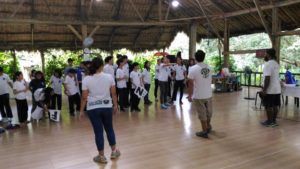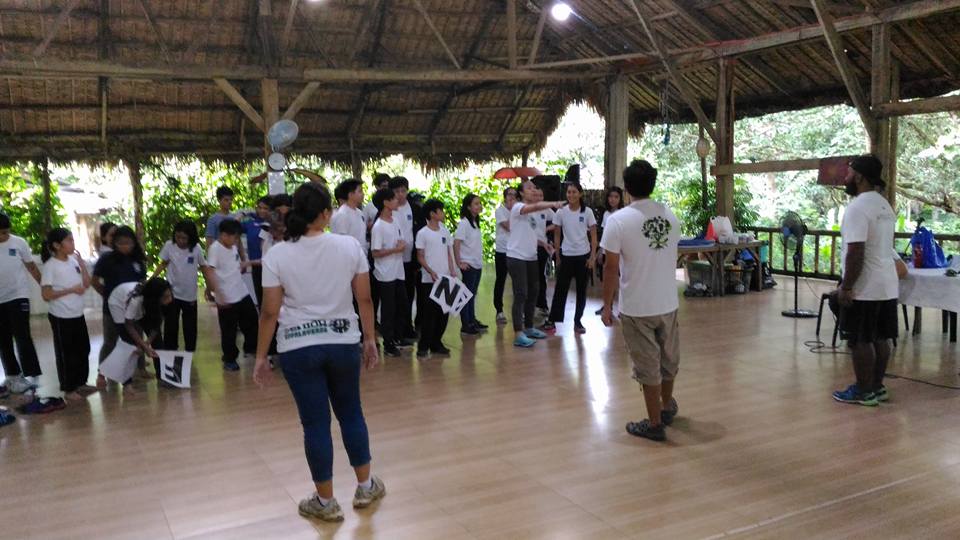
I just came back from the first-ever Strengths Explorer Camp here in the Philippines!
Thanks to Master Kit, and Camp Explore, for the opportunity! It was a fun 2 and a half days filled with fun learning activities! Not to mention some pool time too!
It was also a blessing to have watched these kids figure things out on their own, and succeed, as we gave them challenge after challenge, game after game.
The kids who will someday be the future leaders of the world.
What are some of the leadership lessons I learned at camp?
Respect breeds respect
You teach other people how to treat you, and you also teach other people how to react to you.
I saw some kids who were kind and respectful to other kids, and that in turn invited the same treatment.
There were also some kids who were rowdy and mischievous, and a bit mean at times, and that in turn, invited the same treatment from others. Sometimes, to the point of being ignored by their campmates.
I recall there was this kid in one of the camper’s tribes, who was really bossy towards the other tribemates. The other kids reacted defensively.
When the bossy kid tried to be encouraging and kind, it was met with defensiveness as well. They got used to reacting defensively, and I feel they doubted the bossy kid’s motives for doing so.
People don’t really remember what you do to them.
But, they will definitely remember how you made them feel.
Like begets like.
If you treat others with respect, then they are more likely to treat you with respect.
Along with that is teaching other people how to treat you, so you better treat yourself with respect, as well.
Structure and expectations
We had orderly, peaceful, and happy campers when they have an idea on what’s expected of them, what the rules are, who to turn to for help, how they should act, and an idea of what was to come next.
Of course, we didn’t spoil any surprises, but we didn’t want our campers to be in the dark, lost and confused, so to speak.
This also translates into the workplace, and families.
If people don’t know what’s expected of them, they won’t be able to fulfill those said expectations.
Clear expectations and structure provide a clear foundation to discuss performance, behavior,and results.
It will also help see what people need to succeed, and how they can further develop excellence.
As simple as house rules, and scheduling time for activities, games, learning, and even washing up, helped make the campers’, and the teachers’, lives easier.
Also, being with the kids, talking to them, playing, listening to them, is their form of coaching and performance conversation.
It’s not a one-time thing. It’s an on-going conversation, and you can make that into a structure and expectation as well.
Provide an open and safe environment
Away from the parents, school, formal classrooms, the kids felt free to be themselves, and to interact with others while being themselves.
At camp, a lot of thought, effort, and heart is put into making the campers safe.
The same is also true for making the campers feel safe.
We share that camp is a “No judgement zone”, that we’re all free to be ourselves, and that it’s ok to be different.
When people are safe, they more readily express their ideas, express themselves, develop friendships, work together, and overcome problems.
They aren’t afraid of someone stabbing them in the back.
More energy is put forth into being in the moment, with other people they can trust, rather than defending themselves and covering up their ass.
Sadly, this isn’t the way in most companies and offices. A lot of people build walls, because the environment, the people, and policies, don’t lend themselves to making people feel safe.
Also, we’re not used to appreciating and giving praise to our co-workers, in public. But this small action actually boosts trust, confidence, and team unity.
Praise in public, reprimand in private.
Intention informs action
What effect do you want to have?
What impact do you want to make?
What do you truly want to do in your heart?
All of that, your intentions, your beliefs, inform and affect the action you take.
And also, influences how it lands with other people. How they might take it.
How what you do, comes across.
Even if it’s the same action, with different intentions, could end up with different results, and will surely end up with different feelings and follow-through.
Like an iceberg, the action is just the 10% that can be seen by others. What holds it up, gives it form, and allows it to float and carry on, is the 90% that can’t be seen underwater. That’s the intention.
I distinctly remember the difference in the meetings I ran, where I genuinely wanted to connect with the people and work as a team, or when I felt the team was hopeless, and went into the meeting with the intention of just getting it over with.
Or getting out of the team, even.
Intention informs action, and is actually more important.
because if you have the right intention in mind, then it becomes easier to think up of the right action to do.
In some cases, what you do doesn’t even matter.
It’s what’s behind what you do.
Be like children.
The kids I saw at camp were fearless, strong, believed they could do anything, and were willing to try and explore.
They had a real curiosity, and were honestly figuring things out for themselves, and how things would fit and mean for them.
Then, as they grew older, the optimism starts to fade away, and curiosity dulls, and the hope begins to turn into hopelessness and a sad jadedness.
As we develop into leaders, and develop leaders as well, be more like children.
Children who are wide-eyed, adventurous, strong, open to learn and change, and hopeful.
When was the last time you played, and just played for fun, with friends? Please share in the comments below!

[…] Learn to talk to people, learn to talk to strangers, and to treat everyone with the same respect that you expect to be treated. […]